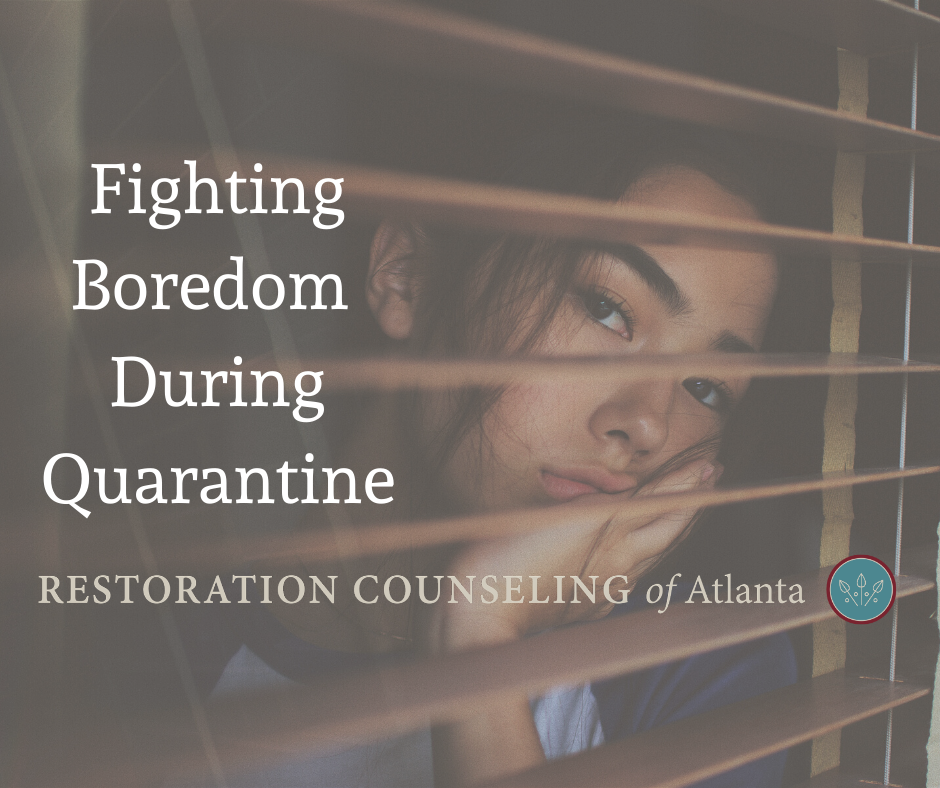Boredom easily sneaks into our lives, especially now. We are all figuring out life in quarantine together. We are processing, finding ways to stay sane, and even cultivating relationships in digital spaces. But in the shadow of the horrors of COVID-19 – the loss of life, hospitals filled to the brim, etc. – there are slower more subtle concerns. These things are creeping into the minds of children and teens during this time. Many find that their biggest enemy right now is extreme boredom. While some boredom is helpful to build creativity, when boredom becomes too overwhelming, it can become a serious problem. This level of boredom not only wrecks sleep cycles and healthy rhythms but passively promotes negative social curiosities.
Boredom can cause problems.
Children and teens begin to find places and things online that they never would have sought out if there wasn’t so much free time. To make matters worse, most parents are extra swamped with work. Getting the time or the energy to check in on their children frequently is a near herculean task. With school work being completed in roughly three hours each day (and many finishing it even quicker than that), many students are sitting alone at home with little to do for nearly eight hours a day. With this amount of free time, the truth is that no amount of internet filters or software can completely protect someone with so much idle time. Life, as it were, finds a way.
As a result, the responsible and ethical members of society are left with a very hard pill to swallow. We are beyond exhausted and flooded with work. But, we know we have a responsibility to children and teens.
What are we to do?
There is no perfect answer to this. It is best to begin by accepting the hard truth that it is likely that your child has come across something already during this time that is, at best, questionable. Accepting this likely reality for yourself can be freeing in a way. I encourage you to allow yourself to accept that curiosity is a normal part of human growth and development. With this foundation set in place some more actionable items can follow
First, begin with conversations that are honest and respectful.
Consider not a simple “I know you are searching things you shouldn’t” conversation, but rather view this through an ongoing relational context, more like a revolving door than a transactionally-minded open and closed case. Don’t aim for setting the scene perfectly but make it a quick, casual conversation. The beginning of this ongoing conversation should promote well-being, not punish curiosity. This can be a simple and subtle acknowledgment that the internet is filled with difficult and painful subjects and that you are concerned about how their friends are doing with so much free time on their hands.
Second aim for conversations that encourage and inspire your child.
Lead them to explore positive things off the beaten path. Show them how to do this. These conversations are anchored in what they are learning outside of school. Ask them what they find most interesting. Encourage them to continue their independent research. Ask them what they’ve always wanted to learn about. Take this a step further. Joining your child in researching this activity. Watch YouTube videos about the subject and take on a niche craft/hobby together like woodworking, etc.
Finally, help promote any sort of stability that you can during this time.
This can be as small as sharing lunches together, sharing a workout together, sharing a walk, or sharing small stories about what you are up to and why it matters. A lot of children and teens don’t fully grasp the non-direct impacts of COVID-19 when it comes to industry and the broader economy. Use this opportunity to show them a bigger picture of how your world affects the broader world.
Written by: Jared Pogue, LPC

